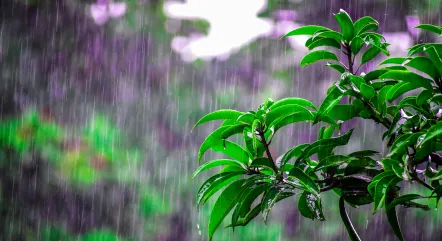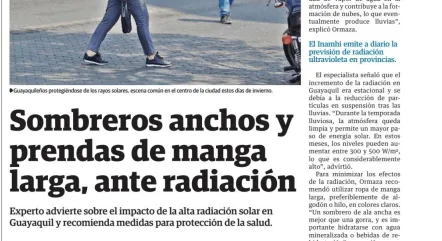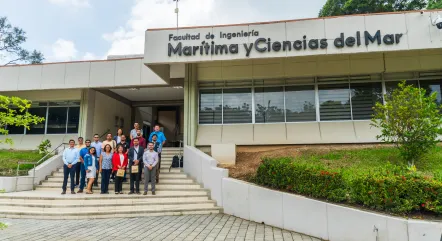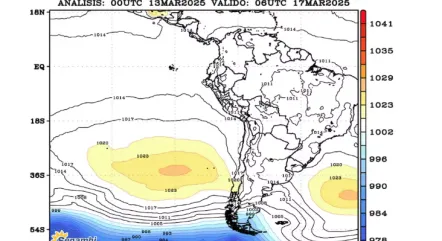Acción por el Clima
Climate change: 50% of glacier cover lost in Ecuador

Climate Change and Glacier Loss in Ecuador
In recent decades, Ecuador has lost 50% of its glacier cover due to climate change. This phenomenon, driven by global warming, is having an alarming impact on the country's water security. One worrying case is that of the Carihuairazo volcano, which in 2025 will completely lose its ice cap, marking a tragic milestone in Ecuador's environmental history.
Preparedness for heavy but sporadic rains on the Ecuadorian coast this March

Preparedness for heavy but sporadic rains on the Ecuadorian Coast this March
March marks the peak of rainfall in the coastal region of Ecuador, with rains that, although intense, will be sporadic. In this context, Ph.D. Franklin Ormaza, oceanographer and research professor of the Faculty of Maritime Engineering and Marine Sciences of ESPOL, shares his analysis of the meteorological conditions expected in the coming days and the importance of adequate preparation.
Ph.D. Franklin Ormaza warns about extreme levels of solar radiation in Guayaquil

Guayaquil faces alarming levels of solar radiation this season, reaching values considered “ultra-high” that can affect the health of the population. According to Ph.D. Franklin Ormaza, oceanographer and research professor at the Faculty of Maritime Engineering and Marine Sciences (FIMCM) of the Escuela Superior Politécnica del Litoral (ESPOL), in recent days the city has registered up to 1,020 W/m², with peaks of 884 W/m² in a single day, figures that represent a significant risk.
Pagination
- Previous page
- Page 2



